Colgate University’s Center for Freedom and Western Civilization brought David Gioe to campus to give a lecture titled “The CIA in American Democracy: Reflections Since 9/11, and Future Prospects” on Monday, Oct. 21. Gioe is a professor of intelligence and international security at King’s College London and a former intelligence officer at the Federal Bureau of Investigation (FBI) and Central Intelligence Agency (CIA), as well as a Navy Reserve commander.
Gioe explained that the purpose of his presentation was to demystify intelligence and illustrate why intelligence is necessary at all in a democracy like the United States.
“I wanted to give you a framing question before I start the talk: Who protects the freedom? We have these freedoms that Western civilization offers us, but then what kinds of things can we do, or should we do, to make sure that that continues? Can we put our feet up and hope it takes care of itself? I would argue that it probably doesn’t,” Gioe said. “But of course, there’s limits, right? Because we live in a democracy, and so how do we go about that? This is a balancing act, and I’m not going to say that the U.S. government has it right.”
By tracing intelligence and espionage backward through American history to Revolutionary War spy Nathan Hale and the World War II-era Office of Strategic Services, Gioe aimed to show that spies and intelligence institutions are a key continuity of the American story. The establishment of the CIA in the wake of the attack on Pearl Harbor in 1947 was the first time that America had a peacetime civilian intelligence apparatus that reported directly to the President, Gioe explained.
The next transformative event for the CIA occurred on September 11, 2001. While the 9/11 terrorist attacks are often discussed as an intelligence failure, Gioe displayed a declassified document from August 6, 2001 in which the CIA warned then-President George W. Bush that Osama bin Laden was determined to strike the U.S. In this way, Gioe showed that the CIA did discharge its duty to warn policymakers. However, Gioe’s opinion was ultimately that the CIA had a duty to fully disrupt the plot, not just make a policy recommendation.
“My own personal view is that the CIA did not discharge its duty, because when you have people jumping from the top of the World Trade Center, that they’d rather go quick than burn slow, I think you failed, and I don’t think that there’s a way around that,” Gioe said.
Gioe started his own CIA career about six weeks after 9/11. In the wake of the attacks, the CIA went into covert action mode, allowing the agency to clandestinely work against hostile groups without the American role being apparent or publicly acknowledged. Gioe felt that the CIA became paramilitarized as a result of the war on terrorism. Further, since intelligence conveys credibility, the intelligence community became intertwined with the American government trying to make a public case for war. In particular, Gioe was disheartened by the widely-held notion that the Bush administration’s rationale for the invasion of Iraq was based on unreliable intelligence that Iraq was holding weapons of mass destruction (WMDs).
“Iraq WMDs cast a shadow over the credibility of the U.S. intelligence community, literally to this day,” Gioe said. “Intelligence is ultimately an assessment. Intelligence is not fact, and intelligence is not truth.”
Gioe also cited a May 2023 Harvard University Center for American Political Studies and Harris Poll which found that 70% of American voters surveyed are concerned about interference and adversarial meddling by intelligence agencies in elections.
“I found that extraordinary,” Gioe said. “It is a dangerous world out there. I’m not going to tell you it’s not, and yet, 70% of Americans think the real threat is from the men and women of the U.S. intelligence community.”
Junior Luke Lostumbo disagreed with Gioe’s frustration about this public crisis of legitimacy.
“I find myself having a hard time agreeing with Gioe’s main claim that the public is wrong to be distrustful of intelligence agencies. For as much work they have done to prevent attacks against our institutions, they are dogged by some controversies that the public cannot be expected to forget, not the least of which being the surveillance overreach revealed by Snowden,” Lostumbo said. “In many ways, it’s the nature of this cloak-and-dagger industry that there be a degree of suspicion and distrust, a fact which Gioe seemed inordinately distressed by.”
While Gioe acknowledged that intelligence should be accountable in democracies, he also felt that this transparency could only go so far without harming future intelligence endeavors.
“Citizens clearly want transparency, but what’s the right amount of transparency? If you’re so transparent, do you lose any of your operational capabilities? Do you jeopardize your sources and methods? You don’t want to have a reputation for being an unsecure vessel. Because then who can be recruited in the Kremlin, who’s going to tell you what Putin is going to do? Probably nobody. So there has to be a balance here,” Gioe said. “Democratic intelligence communities are trying to share more.”
American intelligence organizations also share with the intelligence communities of other democracies, creating what Gioe characterized as close and trusting collaborative relationships.
“On September 12, 2001, there was only one plane that entered U.S. airspace, and it was carrying the heads of the British intelligence community: MI5, MI6 and GCHQ — the only plane to land in the United States the day after 9/11,” Gioe said. “The special intelligence relationship between the U.S. and the U.K. is an actual, real thing. There’s a political relationship, there’s a cultural relationship.”
Domestically, Gioe thought that the intelligence community has been unduly criticized from all directions in a widespread, nonpartisan manner.
“I’m not here to say political things, or at least partisan things — this is political — but it is true that U.S. intelligence has been a punching bag for both sides of the aisle,” Gioe said.
Gioe also mentioned that serving former president Donald Trump was a challenge for American intelligence organizations, as Trump didn’t trust the intelligence or law enforcement community. Lostumbo was especially interested in learning about this hidden dynamic of American democracy.
“I found Gioe’s comments on the effect the executive branch has on intelligence to be particularly compelling,” Lostumbo said. “I was interested to learn the uniquely adversarial relationship between intelligence agencies and the Trump administration, as well as the concern of less experienced ‘loyalists’ being appointed at higher levels by either party. Still, the fact that most lower-level operatives are professional bipartisans is a relief.”
Associate Professor of Art and Co-Director of the Center for Freedom and Western Civilization Carolyn Guile drew a line connecting the possibilities of American intelligence to the current Russian war in Ukraine.
“I’ve been interested personally in how intelligence might help us understand the ways cultural heritage may be impacted by war, and the extent to which technologies that we have at our disposal allow us to come to particular conclusions about that,” Guile said.
Gioe felt that underestimating Ukrainian morale in the context of this war was a minor intelligence mistake. In any case, though, he believed that the renaissance of U.S. intelligence power was close, and that the future lay in crises like the Russian war in Ukraine.
Lostumbo was ultimately thankful for the opportunity to hear from Gioe, and praised his analysis of American intelligence.
“Overall, I was quite impressed with Gioe’s lecture,” Lostumbo said. “This is clearly a man who has a very deep understanding of the intelligence community and its impact on the political landscape.”





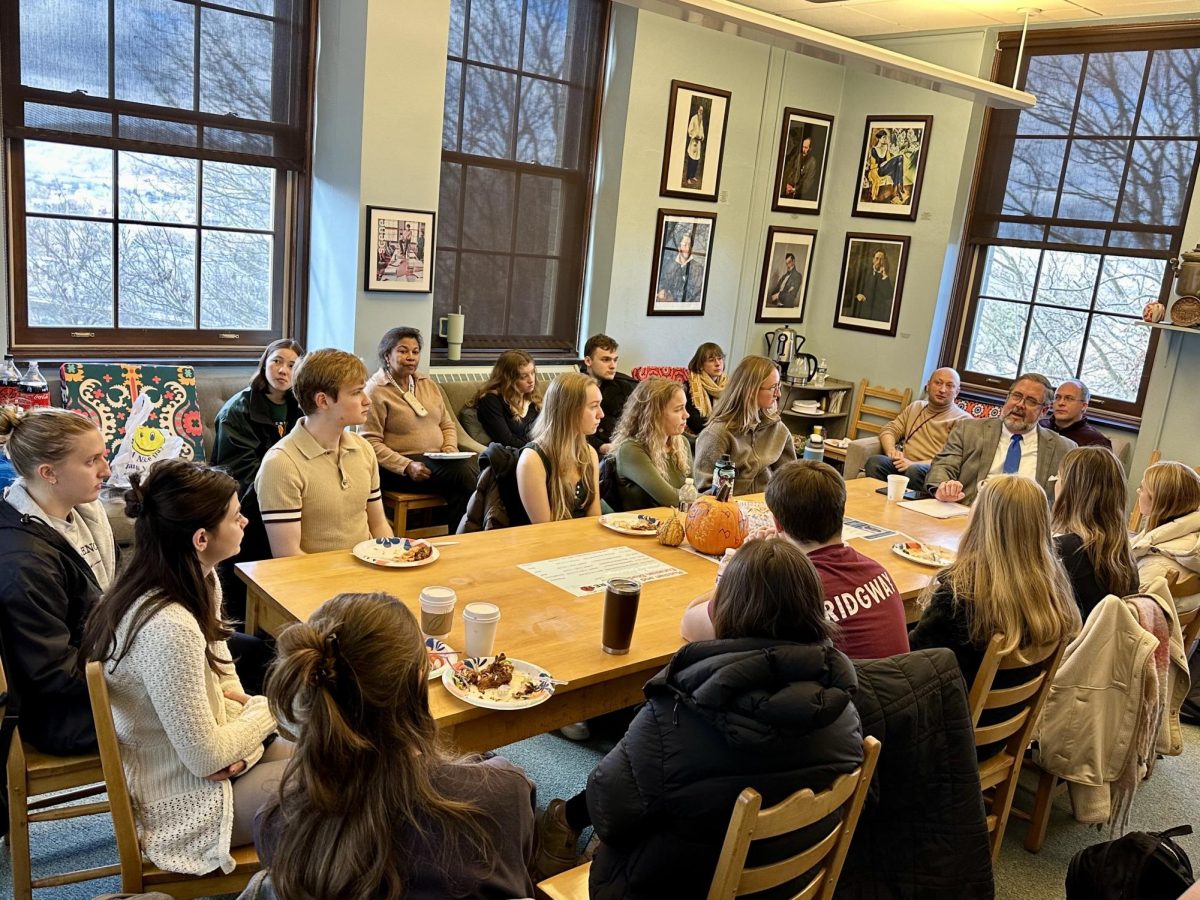
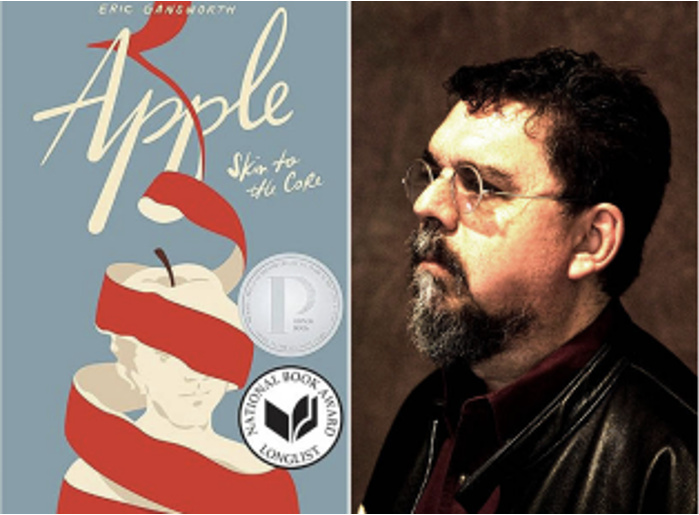

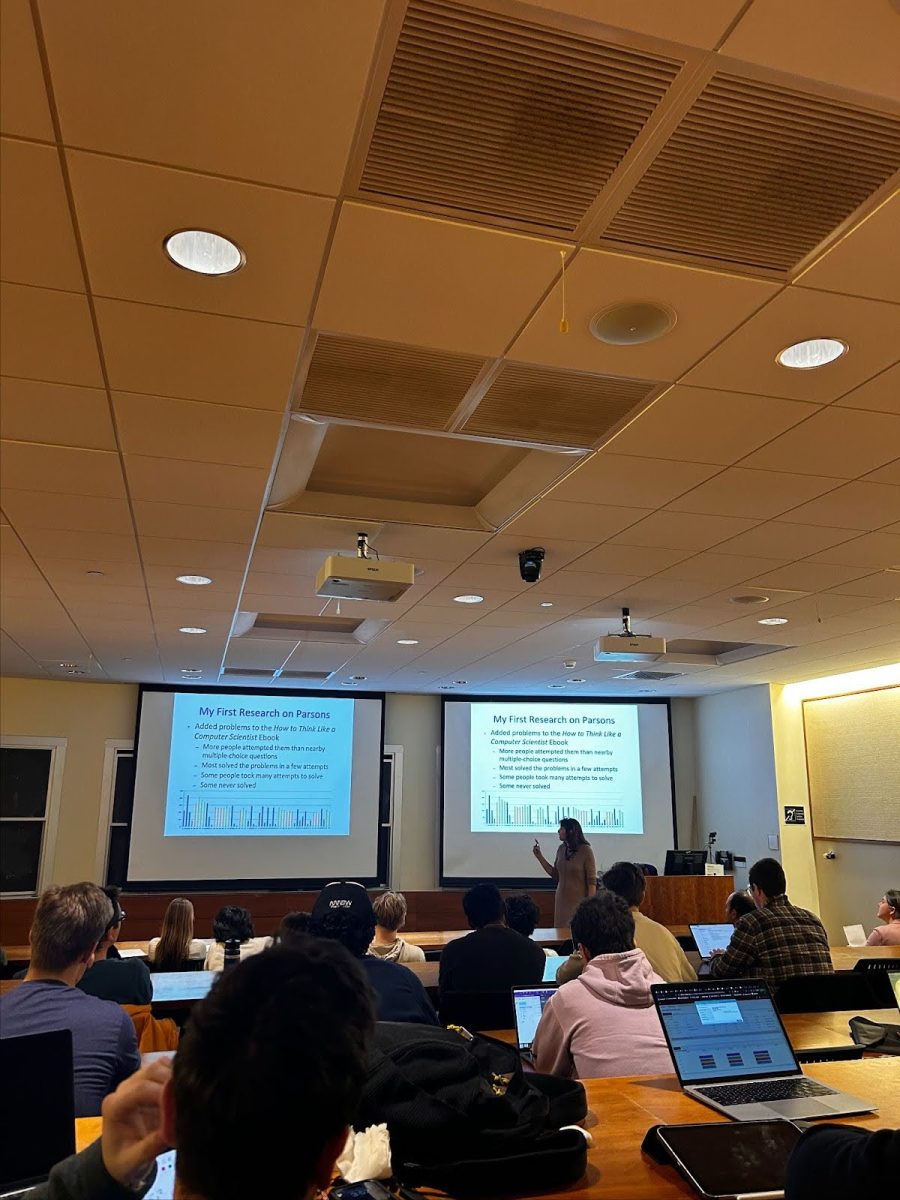

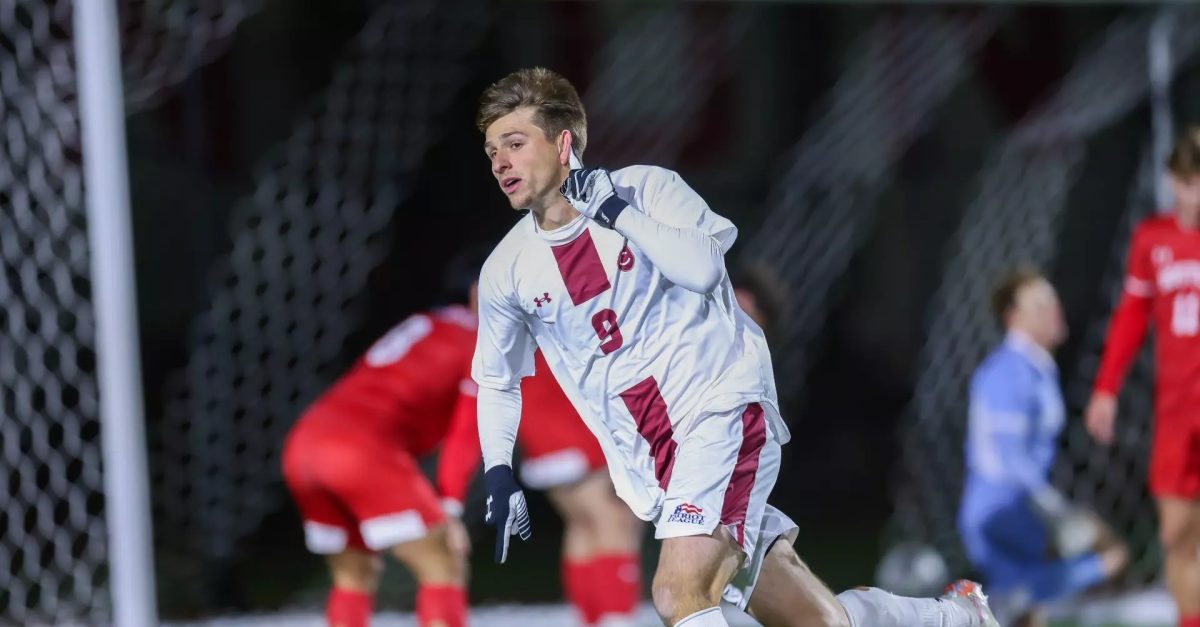


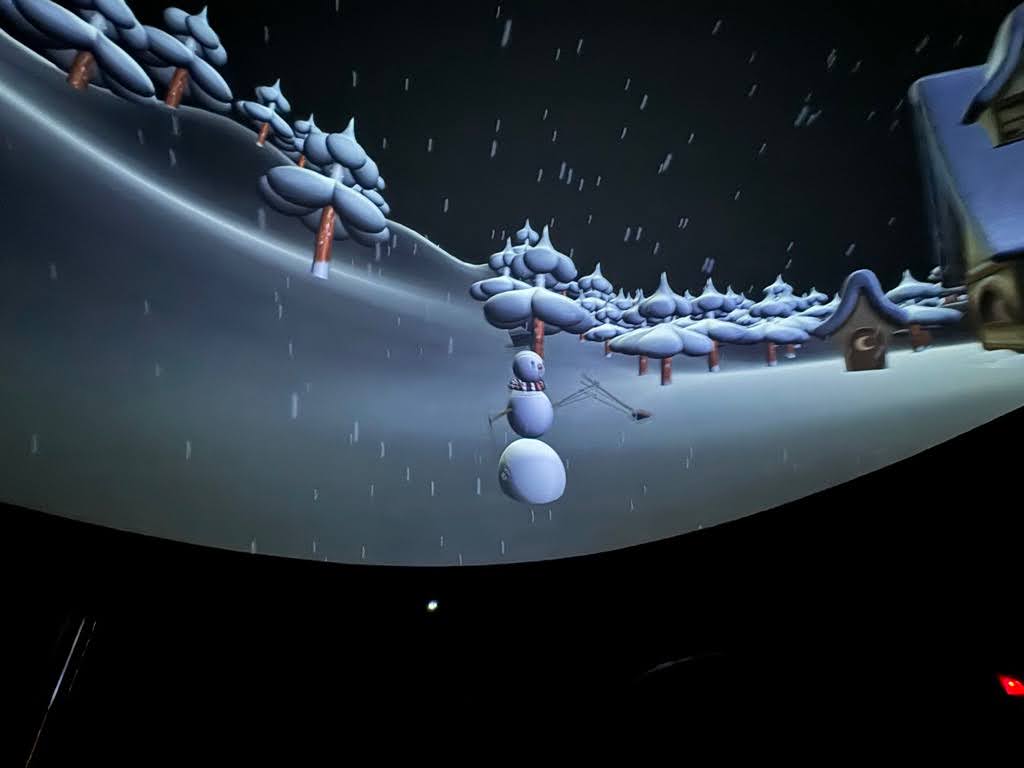
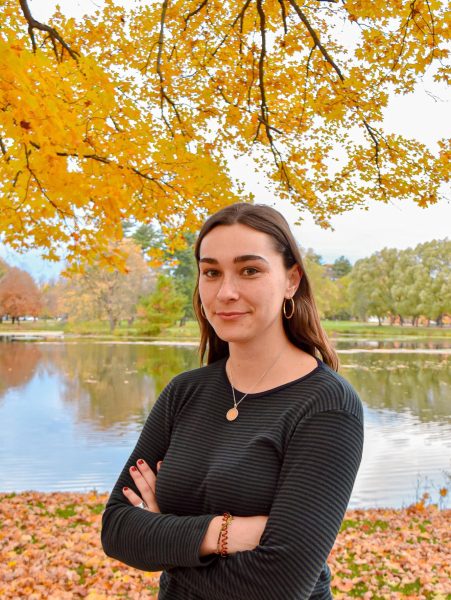
Colin maclennan campbell III • Oct 26, 2024 at 11:46 am
Transparency is like walking with the natural god and should our goal as it is my goal so we the people are treated as equals including all intelligent life. The more diverse we are the better chance we have to survive